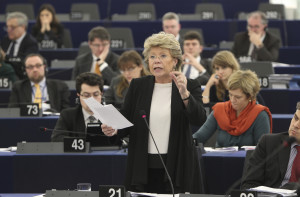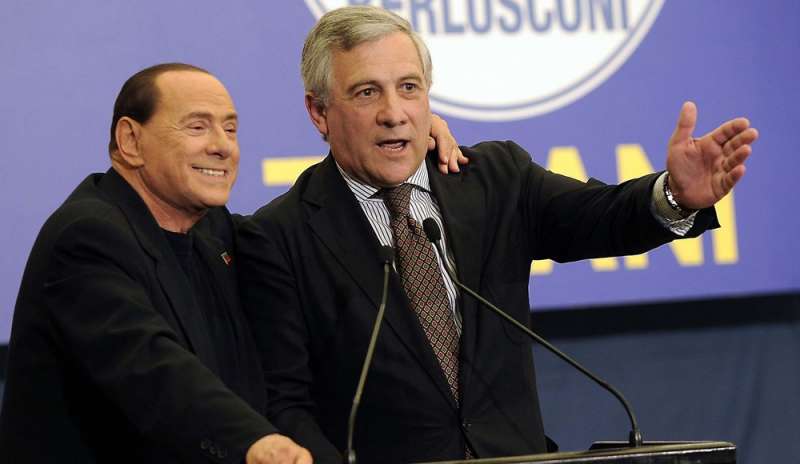Recommendation to make choosing the Head of Commission more democratic is presented
Meanwhile in Brussels the Committee of Permanent Representatives (Corepre) proposes moving the 2014 elections from June to May

Clarity, transparency and democracy: these are the key words for the EC regarding the new voting process that Brussels plans to assign to the formation process of the community institutions. Directions from the candidate to the EU Commission, clear positioning of national parties inside European Parliamentary groups, one single day throughout Europe for community elections: these are the rules that the EU Commissioner for Justice, Viviane Reding, brought to the attention of the European Parliament. In Strasbourg she presented the recommendation containing the actions considered to be indispensable by Commissioner Barroso to render the implementation of the next European Parliament elections more democratic.
In the first place, indicating the candidate for European Commission President must be by every Parliamentary group. Josè Manuel Barroso, President of the EC, has lingered many times in the last few months on this perspective. “The political parties must divulge who they support among the candidates,” Reding highlighted.
But clarity is asked of the member states as well. Among the recommendations included in the text presented by Reding, was the invitation to national political parties of the 27 member countries to “be clear before and during the elections,” regarding affinity to EU Parliamentary groups. This is not a trivial request. The EC calculated that 84% of European citizens agree with the idea that to have more information on the EU Parliamentary elections would contribute to increasing the number of voters (in 2009 only 43% of those eligible voted).
“Europe cannot be built without the participation of Europeans,” Reding remarked. “It is fundamental that the people express themselves on the evolving process and progress of the Union.” In this sense “today’s recommendations will contribute to making the people’s voice stronger inside European democracy and making the next Parliamentary elections a time of real debate on the future of Europe.” EC Commissioner for Inter-Institutional Relations, Maros Sefcovic, is of the same opinion. “These recommendations will truly stimulate voters’ interest in European elections and this is a good sign.”
In terms of urging them to “agree on one day for community voting,” the request was welcomed by the European Council purely by coincidence. Whereas in Strasbourg Reding presented the recommendation to the Commission, in Brussels the Committee of Permanent Representatives (Coreper) approved text that would move European Parliamentary elections up to May 22-25, 2014 instead of June 5-8, 2014. Responding to a request that had already moved forward by Parliament itself, Coreper adopted a draft that will now need to be unanimously approved by the Council of Ministers. The go ahead, they explain in Brussels, will be strictly a formality and the text from today could already be approved on Monday at the Agricultural Council meeting as ‘Attachment A,’ of the working document which usually is adopted without discussion. Underlying the decision to move the voting is when holidays fall on the 2014 calendar. Next year June 8th is Pentecost Sunday, a holiday for Christians.
Renato Giannetti
Related articles:
– Fazi: La Commissione proponga subito l’elezione diretta del suo presidente
– Barroso lancia il cuore oltre l’ostacolo: Lavoriamo all’Europa federale
– Cittadinanza Ue questa sconosciuta, Reding: Apriamo un dibattito con la gente











